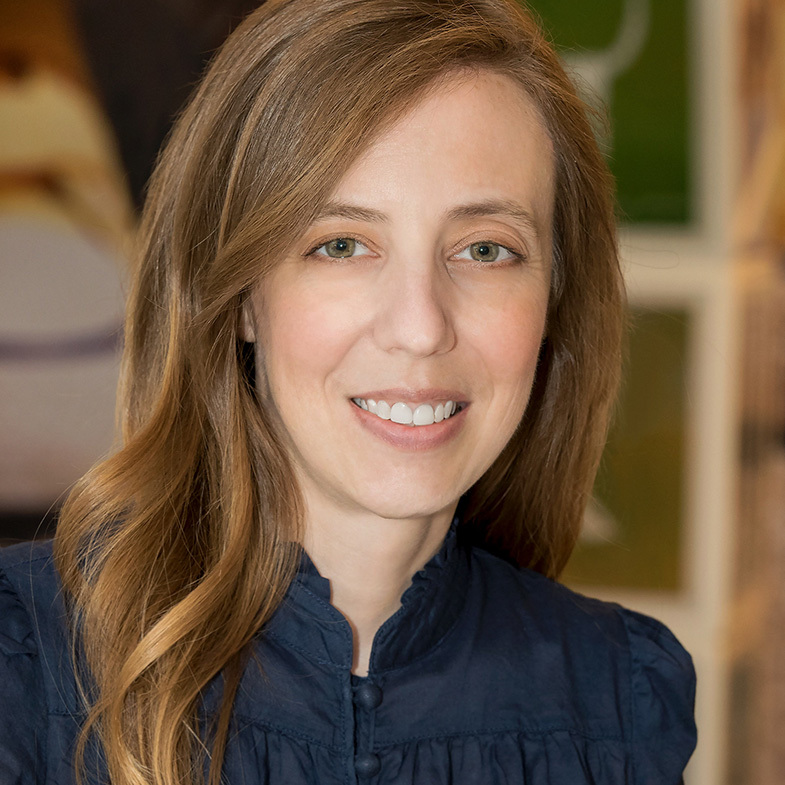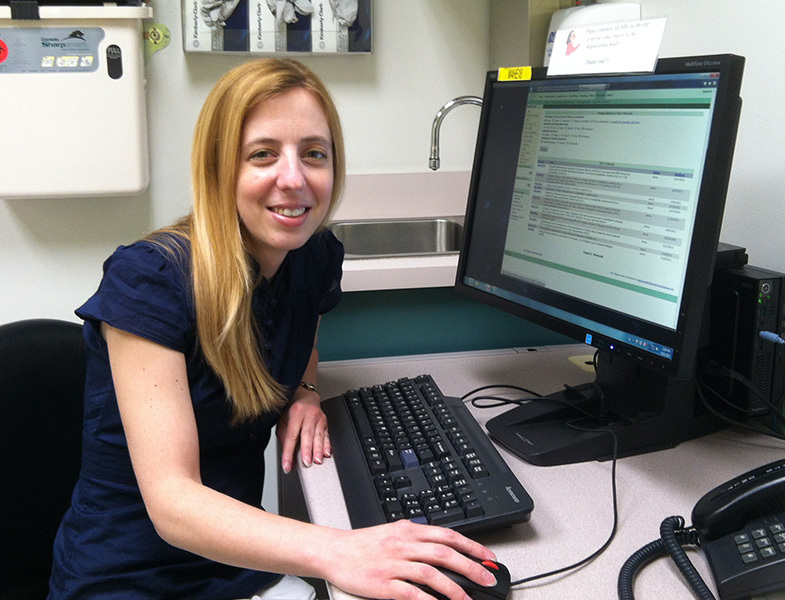Editor’s Note: Shannon Maude, M.D., Ph.D. is a physician scientist at Children’s Hospital of Philadelphia (CHOP), where she has specialized in treating children with acute lymphocytic leukemia, or ALL. A member of the St. Baldrick’s Foundation — Stand Up To Cancer Pediatric Cancer Dream Team*, she got her start in pediatric cancer research in part thanks to a St. Baldrick’s Scholar grant.
Two years of her scholar grant were funded by the Rally for Ryan Hero Fund. Ryan’s mom reports that he is “doing great” after his latest checkup in August 2019.
We recently discussed her career and her work with children impacted by ALL. An edited transcript of that discussion is below.
 Dr. Shannon Maude credits a St. Baldrick’s Scholar grant to her start in pediatric cancer research.
Dr. Shannon Maude credits a St. Baldrick’s Scholar grant to her start in pediatric cancer research.
When did you know that researching pediatric cancer would become your career path? What prompted that decision?
From the time I first thought about a career in medicine, my junior year of high school when my uncle was going through cancer treatment, I wanted to make an impact in cancer research.
You were a St. Baldrick’s Scholar from 2013 through 2018. How was that Scholar funding important in terms of launching your career as a physician researcher?
St. Baldrick’s funding through the Scholar award made an enormous impact on my career as a physician scientist, allowing me to pursue a new clinical research path, immunotherapy for relapsed ALL, while continuing laboratory research identifying new targeted therapies for high-risk ALL.
You have done some really interesting work in the areas of genomics and immunotherapy. Can you briefly describe (in lay language) how that work has evolved over the past few years?
At the start of my St. Baldrick’s Scholar funding, my research focused on identifying high-risk leukemias that may respond to a medication that targets a genetic change in the leukemia. That medication is currently in a clinical trial for these high-risk subtypes of ALL. Over the course of my Scholar award, I became involved in clinical trials of CAR T cell therapy, a type of immunotherapy that trains the patient’s own immune system to recognize and kill cancerous cells. This transformational therapy has produced long-term remissions in children with previously incurable leukemia. The St. Baldrick’s Foundation was extremely supportive of my transition into immunotherapy research, and the Scholar funding was invaluable in allowing me the flexibility to do this research. I now lead 4 clinical trials extending this therapy into early lines of treatment, impacting more children, and studying the next generation of CAR T cell therapy.
 Dr. Maude leads four clinical trials of CAR T cell therapy, a type of immunotherapy that trains the patient’s own immune system to recognize and kill cancerous cells.
Dr. Maude leads four clinical trials of CAR T cell therapy, a type of immunotherapy that trains the patient’s own immune system to recognize and kill cancerous cells.
Is there anything you’d like our supporters to know about your patients?
There are numerous stories of children impacted by CAR T cell therapy, children who had been through so much in their young lives, for whom so many therapies had failed, who now are able to experience normal childhood – going to school, playing baseball.
What would you most like St. Baldrick’s volunteers and donors to know about your work and the role our funding has played, so far?
St. Baldrick’s Scholar funding provides invaluable support to researchers at the start of their careers, a vital time when career paths are determined. Without this support, I and others might not have been able to continue pediatric cancer research.
The St. Baldrick’s Foundation supports cancer research projects throughout the country – and even around the world – and you can help through your donation to St. Baldrick’s.
Join us today and #DFYchildhoodCancers!
*Formerly known as the St. Baldrick’s – Stand Up to Cancer Pediatric Cancer Dream Team, this team is now the St. Baldrick’s EPICC Team (Empowering Pediatric Immunotherapies for Childhood Cancer).
Read more on the St. Baldrick’s blog:

 SBF
Tweets »
SBF
Tweets »